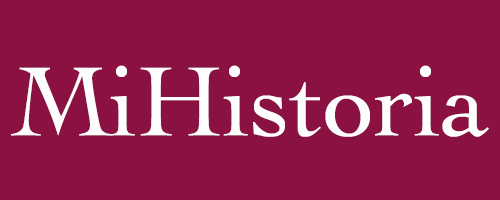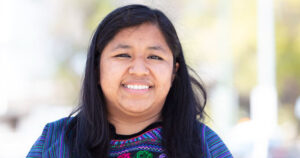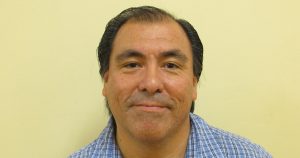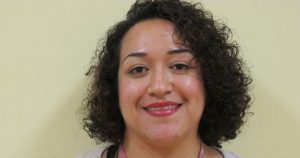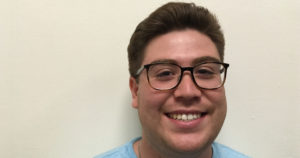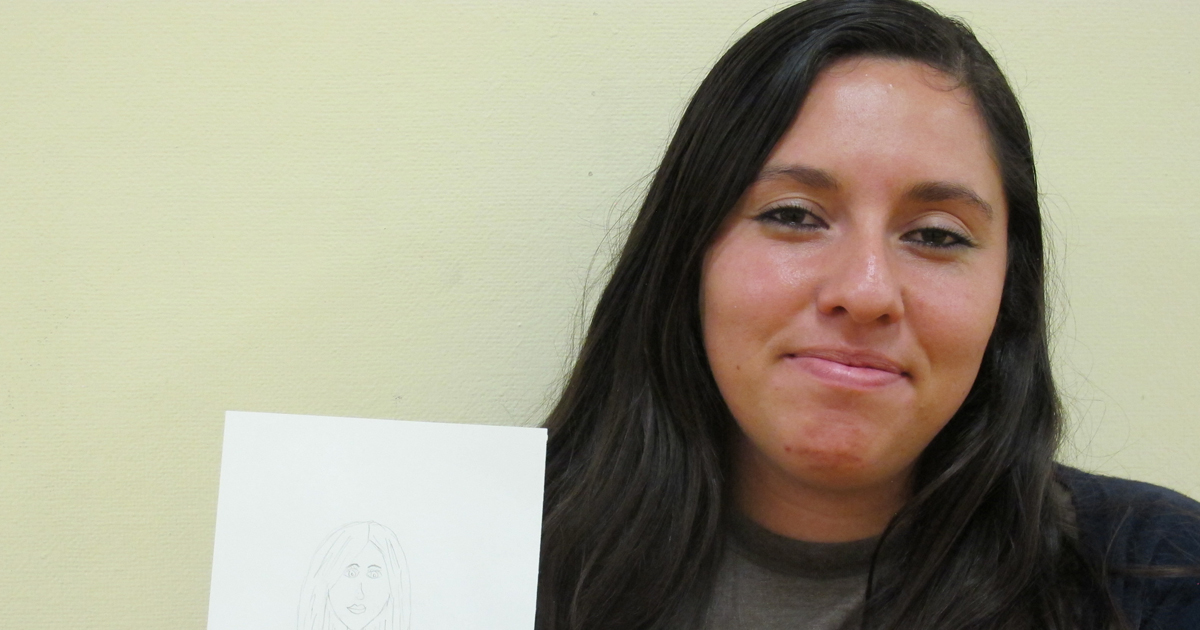
Although I’ve always loved education, I haven’t always liked school. Schools didn’t teach me to value myself, my family, my culture. Society didn’t teach me to value myself, my family, my culture.
All I used to see on TV was the criminalization of immigrants, and the fear in my family that something could happen to them. Even though my parents were residents, there was still uncertainty, because no matter your status, education, etc. this country still has a way of making you feel disposable. History has told us we are disposable. History told us we are disposable!
I went through a period of language loss and dis-identification. I wanted to assimilate because I didn’t see the value in my language and culture. But, no matter what, I still felt empty. Assimilation didn’t fulfill me. I still felt like an outsider. And, how could I just leave my parents and family behind? I loved them, but I didn’t know how to bring them with me. I wasn’t asked to include them in my education.
Although I was aware of racial inequality, I wasn’t critical of it. My introduction to consciousness was through feminism. My experiences as a female were easier to articulate than those around race. At this point, I started wanting more out of education. This is where I started to realize how biased and Eurocentric my education has been. I wanted to learn about women, but even more about women of color, but I had no idea where to find that. I had to start researching and buying my own books, because these voices and stories that I wanted weren’t available at school. I felt that the only place to find a truly authentic education was at a University. So my path towards academia was motivated by my educational needs that weren’t being served in the k-12 setting.
I began my educational journey at San Francisco State University in the Raza Studies Department.
“I found a space that finally understood my internal struggles, and which helped me articulate it better. It was a painful process, but I learned to heal and come out stronger.”
This prepared me for even bigger challenges in my life.
When my husband and I were going through the legalization process, we ended up being separated for 3 1/2 years. He was in Mexico, and although I visited him as often as I could it was still a difficult time. At this point, I was attending the University of Texas at San Antonio. I was struggling with the changes of culture. Even though there’s a larger Mexican community there, the history and experiences there are much different than my own as a Chicana from Los Angeles. Despite that, I found some amazing professors to nurture and mentor me during one of the most difficult times in my life. Within the Mexican American Studies program, I found a space that helped me see the value in my story and experiences. I started working as an editor for the Mujeres Activas en Letras y Ciencia (MALCS) journal, and began to see the power in writing. These spaces prepared me with how to navigate academia when I stepped out of my safe zone. Although I was majoring in Mexican American Studies, I did a double major in English. Those courses were not always inviting.
Depending on the course and professor, I either felt brilliant or inadequate. Other students didn’t understand my writing or story. It wasn’t what they were used to. They would tell me to change everything, tell me to italicize el español, or make ridiculous interpretations of cultural references. I still persevered, because I knew that they were not my intended audience. My audience were those young kids who grew up just like me.
Storyteller Crystal Serrano is in a credential program to teach English in secondary schools.
